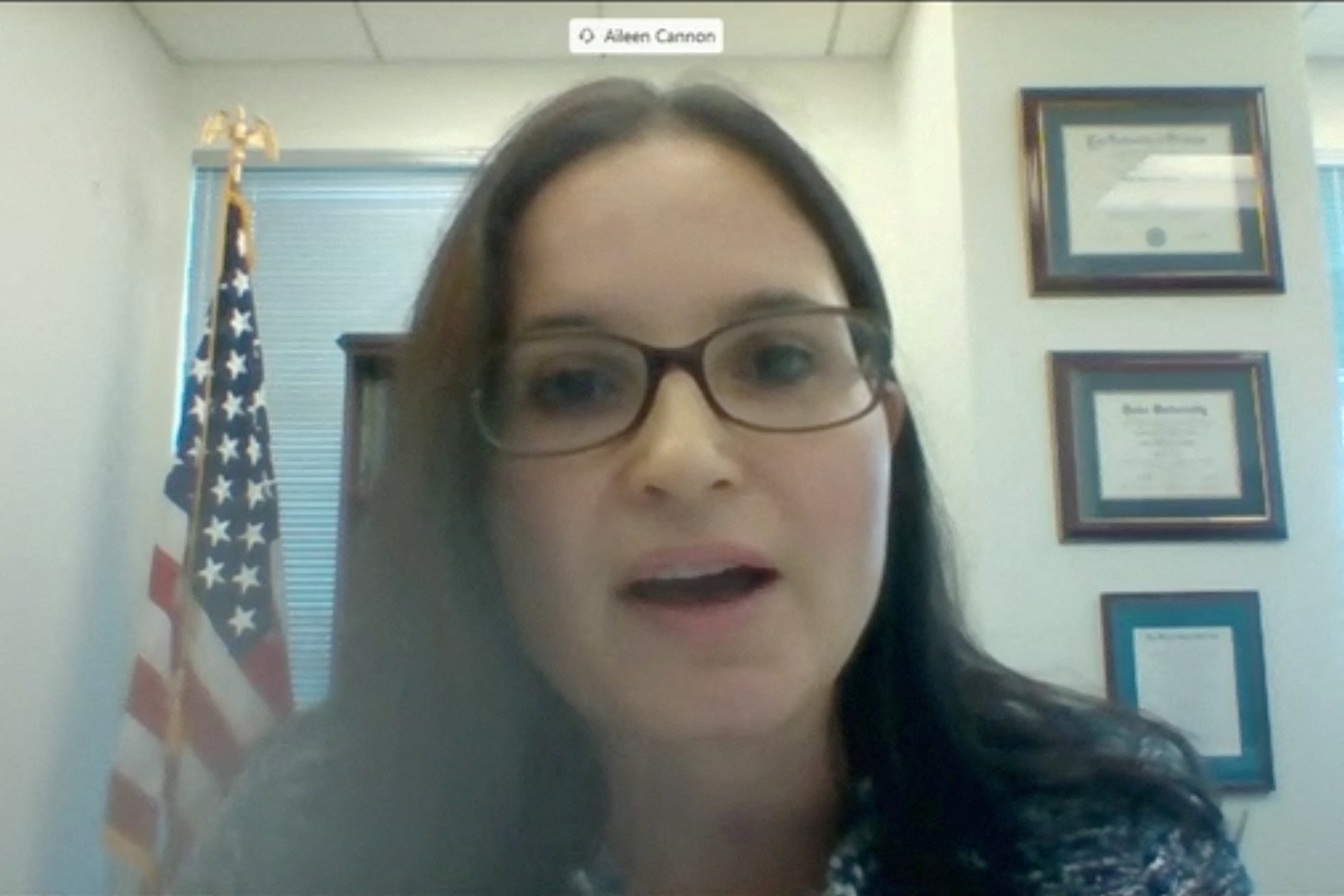The federal judge who tossed out Donald Trump’s classified documents case could be in line to be the next attorney general.
District Judge Aileen Cannon is reportedly on a list of names for top law enforcement positions within a potential second Trump administration, according to ABC News, citing a planning document titled “Transition Planning: Legal Principals.”
The document was reportedly drafted by Trump’s top advisers, including Boris Epshteyn, among the former president’s chief aides on his legal team.
Other names allegedly in consideration for top roles in a second Trump administration include Trumpworld figures embroiled in the former president’s criminal cases and those who amplified antidemocratic statements targeting political opponents.
Mike Davis — who has vowed a “reign of terror” and called for journalists to be imprisoned in “gulags” and immigrants in “cages” — is also on the list for attorney general, according to ABC.
Trump’s former assistant attorney general Jeffrey Clark — among the former president’s co-defendants in a sprawling election interference case in Georgia, where they are criminally charged for their attempts to overturn the state’s election results in 2020 — is also reportedly in consideration.
Todd Blanche — who is leading criminal defense teams in Trump’s hush money case in New York and in the Mar-a-Lago case in Florida — is allegedly being considered for assistant attorney general, White House counsel or FBI director.
Another Trump-allied attorney, Stanley Woodward, who represented his co-defendant Walt Nauta in the classified documents case, is also in the running for top administration positions, ABC reported.
Former White House lawyer Mark Paoletta, who represented Clarence Thomas’ wife Ginni during the House select committee investigation into January 6, also is among potential picks for attorney general, according to ABC.
The Independent has requested comment from Trump’s campaign.

In a shock 93-page ruling this summer, Judge Cannon dismissed 40 separate criminal charges stemming from allegations that Trump withheld hundreds of classified documents after leaving the White House for his private Mar-a-Lago residence in Florida, then conspired to obstruct government attempts to retrieve them.
Cannon — who was appointed to the bench by then-President Trump in 2020 — did not speak to the facts of the case or any of the evidence against Trump in her ruling.
Instead, she agreed with Trump’s attorneys who argued that the case should be dismissed on the grounds that special counsel Jack Smith was illegally appointed to the role.
In July, Supreme Court Justice Clarence Thomas filed a wholly separate opinion in an unrelated ruling on presidential “immunity” to cast doubt on the constitutionality of the special counsel’s office, which appeared to give Trump and Judge Cannon a legal pathway to dismissing the Florida case.
Days later, Trump’s attorneys argued that Thomas’s opinion “adds force” to Trump’s claim that Smith’s appointment and funding raise “grave separation-of-powers concerns.”
Cannon’s decision to dismiss the case referenced Thomas’s opinion three times.
Smith’s team appealed the ruling, arguing that the judge’s decision flies in the face of precedents and could jeopardize “hundreds” of similarly appointed offices.







